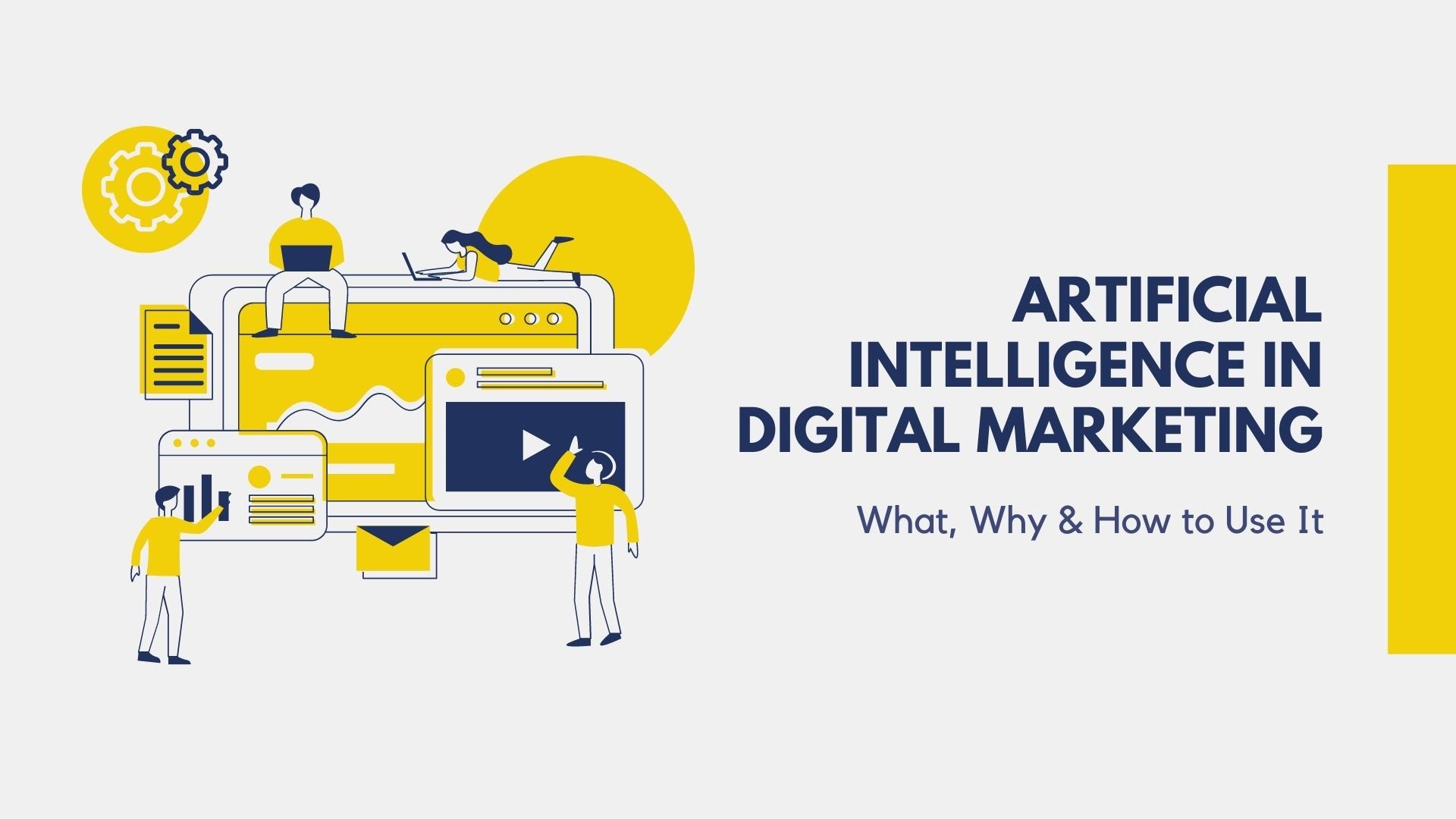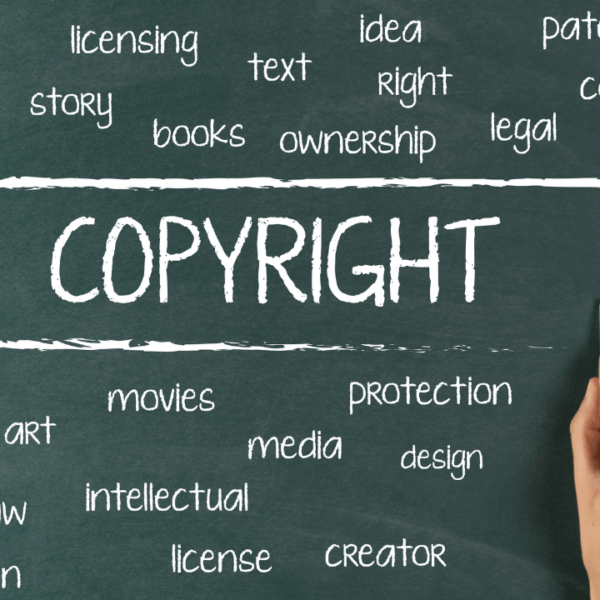Artificial intelligence (AI) is rapidly becoming a key enabler of digital marketing, with its ability to personalize customer experiences and drive conversions.
As AI technology continues to evolve, it will become increasingly important for marketers to understand how they can use it to their advantage.
Digital marketing is constantly evolving and changing, which means that it’s important to stay up-to-date on the latest trends and technologies. One of the most exciting trends right now is artificial intelligence (AI), and there are a number of ways in which it will impact digital marketing in 2022.
In this article, we will dive into what AI looks like in digital marketing, why you should use it, and how to start.
Table of Contents
What Is AI Exactly?
In simple terms, AI can be defined as the ability of machines to perform tasks that would traditionally require human intelligence, such as understanding natural language and recognizing patterns.
When it comes to digital marketing, AI is being used in a variety of ways, from chatbots that simulate human conversation to algorithms that identify the best time to send emails or ads.
There are endless possibilities for how AI can be leveraged in digital marketing, and it is already starting to transform the industry, being used by the best IT service companies around.
The Benefits of Using AI in Digital Marketing
We’ve already provided some regular applications of AI in digital marketing. However, below you will find some more examples of what makes it so useful.
1. AI can help you gather data more efficiently.
By analyzing large amounts of data, AI can help you identify patterns and trends that would be difficult to spot manually. This can help you make more informed decisions about your marketing strategy.
2. Smarter targeting
AI-powered marketing platforms can help identify the best time to reach potential customers with ads or emails, as well as which channels are most likely to result in a conversion. This allows marketers to allocate their budget more efficiently and focus their efforts on the channels that are most likely to yield results.
By understanding your audience’s needs and preferences, AI can help you deliver content that is more relevant and engaging. As a result, your audience is more likely to respond positively to your marketing messages.
Furthermore, AI can be used to analyze large data sets to identify patterns and trends that can be used to improve content strategy.
For example, AI can help identify the topics and keywords that are most likely to result in a high ranking on search engines, as well as the content formats that are most popular with specific target audiences.
3. AI can automate tasks, saving you time and money.
By automating routine tasks such as content generation and social media management, AI can help you save valuable time and resources.
4. Improved ROI
By using AI to improve the efficiency of digital marketing campaigns, marketers can achieve a better return on investment (ROI).
AI is still in its early stages, and the full potential of this technology has yet to be realized. However, it is clear that AI is already starting to transform the digital marketing landscape and will continue to do so in the years to come.
5. AI can improve the quality of your content.
By analyzing data about how people interact with your content, AI can help you make changes that will increase its impact and reach.
6. Personalized customer experiences
AI can be used to create more personalized customer experiences by understanding individual preferences and behaviors. This data can then be used to deliver targeted content, offers, and recommendations that are more likely to result in a conversion.
7. AI can help you measure and analyze results more accurately.
By tracking the performance of your marketing campaigns over time, AI can help you identify which strategies are most effective and make necessary adjustments accordingly.
Furthermore, AI-powered marketing platforms can provide marketers with automated insights that would otherwise be difficult or impossible to obtain.
For example, some platforms can track how customers interact with content and identify which elements are most effective in driving conversions.
How to Use AI in Digital Marketing
Finally, let’s talk a little bit about practical applications. Every company is different, so specific advice needs to be tailored to your own work. However, the tips below are a great general starting point.
1. Start by identifying the areas of your marketing strategy that could benefit from AI implementation.
Some potential areas where AI could be used in marketing include customer segmentation, targeting, messaging, lead scoring, website optimization, and predictive analytics. It’s important to identify which areas will have the biggest impact on your business and focus on those first.
2. Research and choose the right AI tools for your needs.
There are a variety of AI tools available, so it’s important to do your research and find the tools that will best suit your needs. Some factors to consider include the type of AI tool, the features it offers, the pricing, and the size of the company.
3. Train your team on how to use the new AI tools.
Just as with any new technology, it’s important to train your team on how to use the new AI tools. This will ensure that everyone uses them effectively and gets the most out of them.
4. Set up a data collection system to track the results of your AI-powered marketing efforts.
In order to track the results of your AI-powered marketing efforts, you’ll need to set up a data collection system. This will allow you to see how well the AI is performing and make any necessary adjustments.
5. Adjust your strategy as needed and keep using AI to stay ahead of the competition.
The best way to get the most out of AI in marketing is to constantly adjust your strategy based on the results you’re seeing.
Use the data collected from your data collection system to make informed decisions about where to focus your efforts next.
SEO and AI – Practical Examples
SEO and AI are both incredibly important aspects of online marketing. When done correctly, they can help your business reach new heights, increase traffic to your website, and generate leads that convert into customers. However, if you aren’t using them correctly or don’t have the proper resources in place to get the most from them, they can also damage your reputation and lead to lost revenue. If you’re looking to take your business to the next level, it’s important that you learn as much as possible about SEO and AI and implement the right strategies for your specific industry. In order to show you how AI can be used in digital marketing, we’ve put together a few practical examples.
1. Automated content generation
There are a number of AI-powered tools that can be used to generate content, such as Articoolo, QuillBot, Autowriterpro, Nichesss, etc. Here are a few examples of AI powered software categories like content writing software, content management software, content delivery network (CDN) software, blog topic ideas generator, writing assistants software, etc. where AI is playing a big role to produce and manage content online.
2. Social media management
Social media marketing tools like Hootsuite and Sprout Social’s Smart Inbox, and MeetEdgar use AI to help users manage their social media accounts more effectively.
3. Sentiment analysis
Sentiment analysis is a process of using AI to analyze text data in order to determine the emotional tone of a piece of content. This can be used to gauge public opinion about a brand or product.
4. Lead generation
Lead Generation Software likeUBot Studio and Infusionsoft’s Keep can be used to automate the lead generation process by scraping data from sources like websites and social media platforms.
5. Ad targeting
AI-powered ad targeting platforms like ReTargeter and AdRoll use data collected from user behavior to serve ads that are more likely to be relevant and effective.
6. Predictive analytics
Predictive analytics is the process of using AI to analyze data in order to make predictions about future events. This can be used for things like marketing campaign optimization and customer churn prevention.
7. Voice search optimization
As voice-activated assistants become more popular, it’s important to optimize your content for voice search. This can be done with the help of AI-powered tools like Alexa Voice Service and Google Assistant.
8. Chatbots
Chatbots are computer programs that simulate human conversation. They can be used for things like customer service and lead generation.
Examples of Real Companies Using AI
Now that we’ve gone over some of the ways AI can be used in digital marketing, let’s take a look at a few examples of real companies that are already using this technology.
1. IBM
IBM is one of the leading providers of AI software and services. The company’s Watson platform offers a number of tools that can be used for marketing purposes, including a content personalization tool and a customer service chatbot.
2. Adobe
Adobe’s Sensei AI platform powers a number of features in the company’s Creative Cloud suite of products including content suggestion and image recognition.
3. Hootsuite
Hootsuite’s Insights tool uses AI to generate reports about social media activity and engagement.
4. Moz
Moz’s Rank Tracker tool uses AI to help users track and improve their website’s search engine ranking.
5. Marketo
Marketo’s Engagement Engine is an AI-powered platform that provides personalized recommendations for marketing campaigns.
6. HubSpot
HubSpot’s Sales Hub uses AI to help users automate repetitive tasks, such as email and social media monitoring. HubSpot marketing automation and HubSpot CRM are other tools from HubSpot that you need to grow your business.
7. Oracle
Oracle’s CX Cloud suite includes a number of AI-powered features, such as a chatbot builder and a customer journey mapping tool.
8. Salesforce
Salesforce’s Einstein AI platform provides users with a number of features, including predictive analytics and lead scoring.
9. DigitalGenius
DigitalGenius is a customer service platform that uses AI to automate support tasks, such as live chat and email responses.
10. Infusionsoft
Infusionsoft’s Keep platform uses AI to help users automate their sales and marketing processes.
Conclusion
AI is already starting to transform the digital marketing landscape and will continue to do so in the years to come.
By using AI to improve the efficiency of digital marketing campaigns, marketers can achieve a better return on investment (ROI).
Additionally, AI can be used to create more personalized customer experiences by understanding individual preferences and behaviors.
And finally, AI-powered marketing platforms can provide marketers with automated insights that would otherwise be difficult or impossible to obtain.

I am a passionate, adventurous, and insatiate learner who loves to write about the latest technology trends. My experience working in an MNC has motivated me to understand that there are certain niche requirements for writing strategically about brands’ messages towards people’s interests which I’ve mastered over time through trial and error of many projects under various clients across diverse industries. It is my honest effort to put my experiences and knowledge of industry towards readers.





